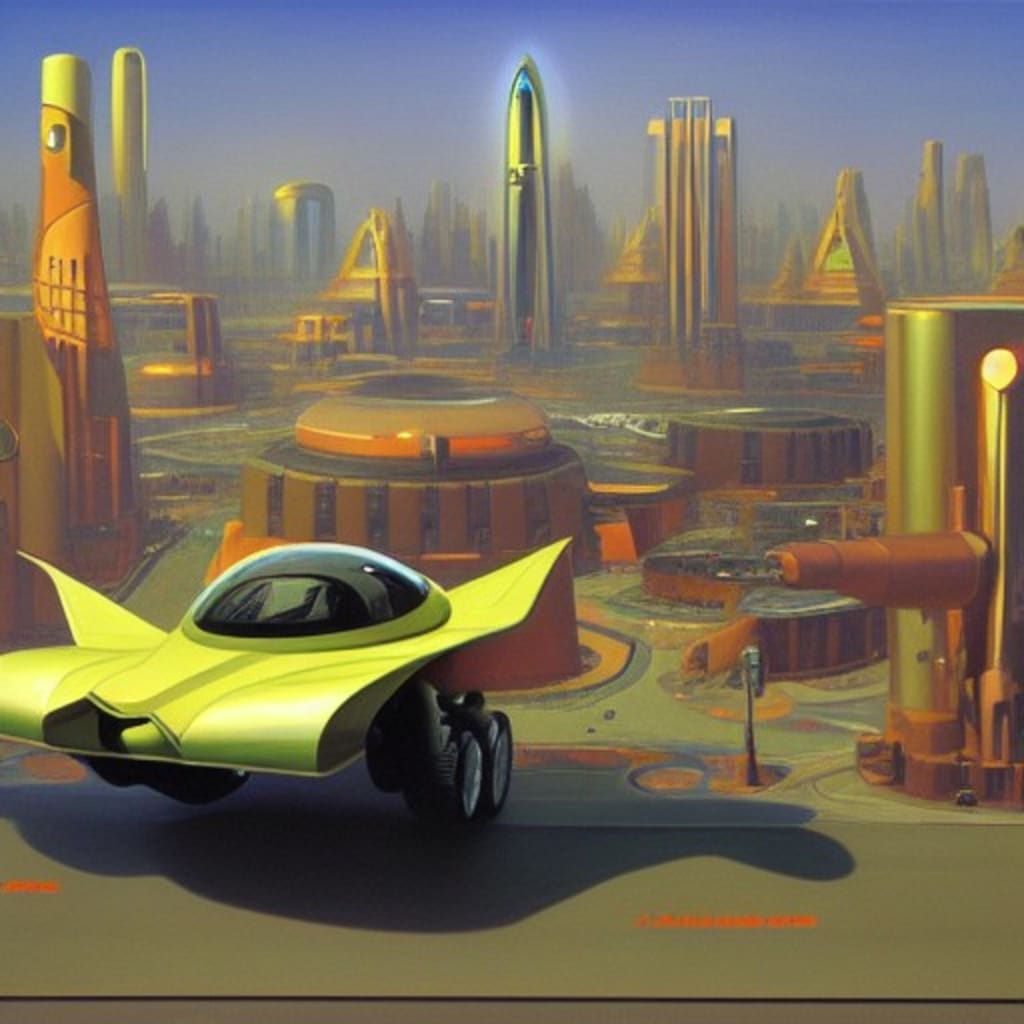Looking Back to the Future
How a high school science class accidentally taught me an important lesson in gender stereotypes

Back in the 1970s days of yore my high school science teacher, a geeky guy who loved sci-fi and emerging technology, was trying to share his excitement with the class. He asked us to imagine the future.
The students offered fanciful visions of a time when we would be riding around in flying cars, have robot servants to clean our rooms, and maybe even have picture telephones like the cartoon Jetsons.
He wanted us to consider computers.
At the time, computers were rare and each approximately the size of todays' refrigerators, and used only by global corporations to do tasks none of understood or cared to understand. Computers seemed as interesting to my fifteen year old self as poring over an Ikea instruction manual. In Korean.
But our teacher insisted that in the not too distant future, computers would be a part of our everyday lives. He couldn't have been more excited than if he'd just announced we were all going on a field trip to the moon.
He asked the boys to imagine going to a job where instead of carrying a brief case, they carried a miniature computer! And not wishing to exclude half the classroom, he added.
"And just think, girls! You may one day use computers to cook dinner for your husbands!"
I groaned. Loudly. His vision of the future sucked like the '70s.
He wasn't a bad teacher, just a regular man of the times. Chances are, you weren't around in the era. Let me assure you, gender roles and expectations were clearly divided and the choices not terribly exciting for those penis-less people.
The lesson stays with me as a reminder of how difficult it is for people, no matter how earnest and well-intentioned, to escape the confines of their times. Few people are true visionaries who can fully imagine a better world and make it happen. Most of us just grumble and stumble along. There are those rare moments when a single event seems to shine a light on society's darkest corners, illuminating institutional racism, or inequity, or misogyny in the glaringly unflattering light they deserve. More often, illumination come slowly. Instead of a quick flip of a switch, it's more like the slow turn of the earth toward the sun until it finally dawns on all of us.
As soon as we can see, we claim we always knew it was there. And on some level, I suppose that is true.
Like the accidental lesson in gender stereotypes I learned in science class, I didn't know what I didn't know until it was laid out blatantly obvious before me.
And then I immediately jumped in to shame the teacher for being such a bumbling dimwit. Why couldn't girls work with computers? Why could girls go to jobs outside the home? Other girls in the class agreed and joined in the mini mutiny. One determinedly contrary boy said he didn't want to go to work and we girls should count ourselves lucky that we could stay home and cook and clean and watch TV.
Shmee. I knew he was simply trying to muffle the roar of our new found girl power. I was strong! I was independent! I was stupidly smug because I thought I saw the way things were but the truth was I still didn't get it.
I say that because my take-away from the computers-are-the-future-of-man talk was to refuse to learn how to cook. Nobody puts Baby in the kitchen! I also resisted typing class. Nobody puts Baby in the secretarial pool! Thankfully, the typing teacher pointed out that knowing your way around a keyboard might also be useful if you wanted to be a writer. I was grateful a few years later when I landed my first job in a newsroom where grizzled old reporters struggled to hunt-and-peck out stories on typewriters -- electric typewriters because it was a modern newsroom! Six months later, all typewriters were replaced by computers. I thought then of my science teacher's seemingly far-fetched prediction, and I realized he'd gotten it partly right. In the half-light before the dawn, he foresaw the shadow of technological advances while I'd focused only on shifting gender roles.
The truth was neither of us saw the big picture in sharp focus. Everything looked blurry.
But we at least tried, both of us searching the horizon with eyes wide open, eager to usher in the change.
About the Creator
Vivian R McInerny
A former daily newspaper journalist, now an independent writer of essays & fiction published in several lit anthologies. The Whole Hole Story children's book was published by Versify Houghton Mifflin Harcourt, 2021. More are forthcoming.
Enjoyed the story? Support the Creator.
Subscribe for free to receive all their stories in your feed. You could also pledge your support or give them a one-off tip, letting them know you appreciate their work.
Reader insights
Nice work
Very well written. Keep up the good work!
Top insight
Compelling and original writing
Creative use of language & vocab






Comments
There are no comments for this story
Be the first to respond and start the conversation.